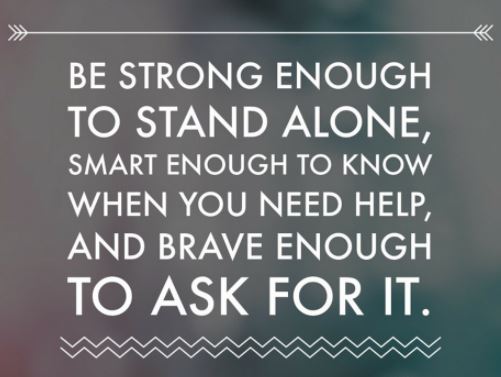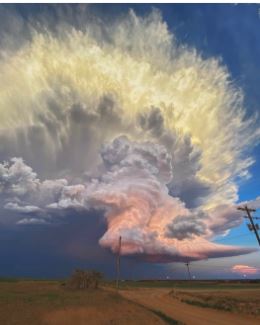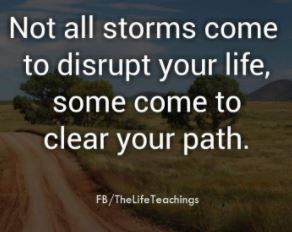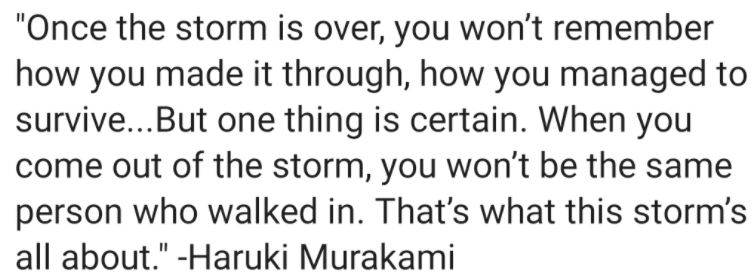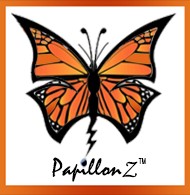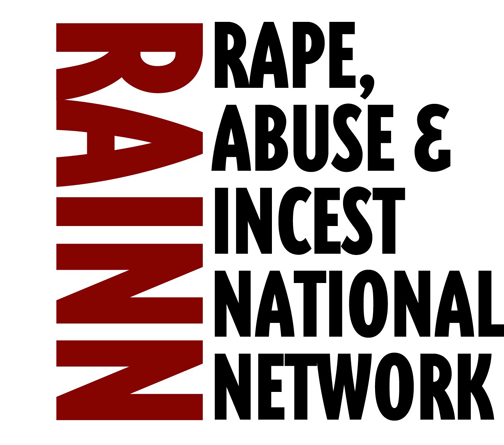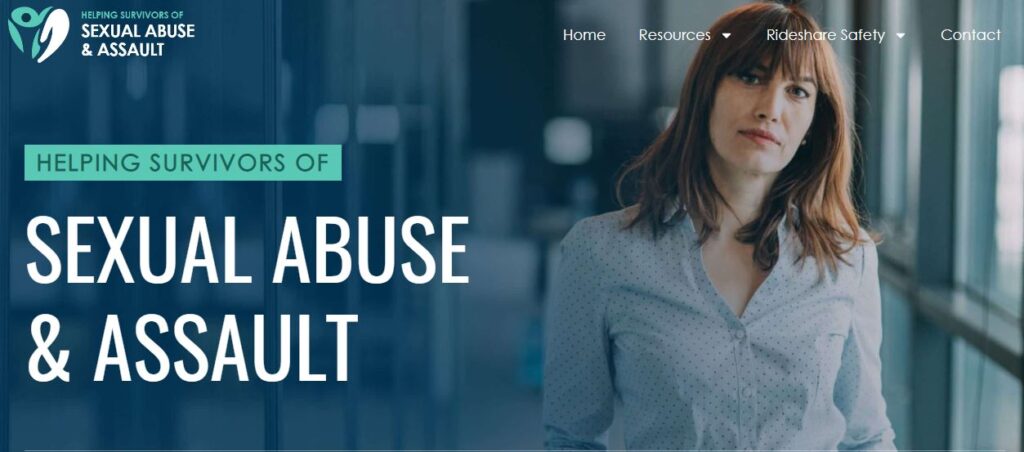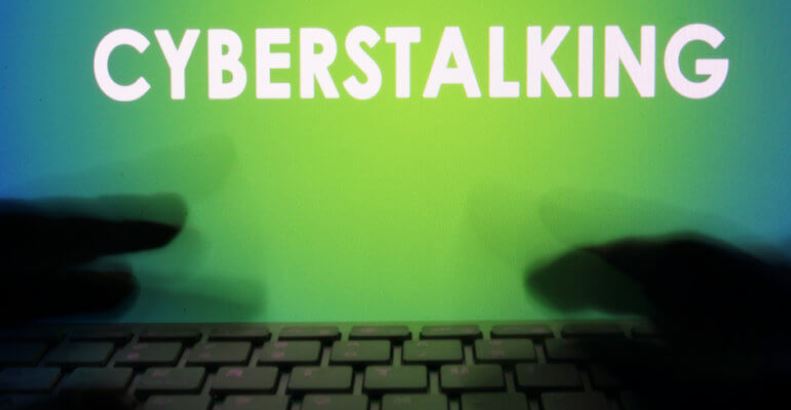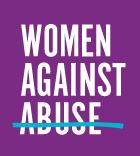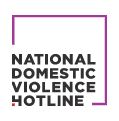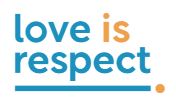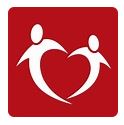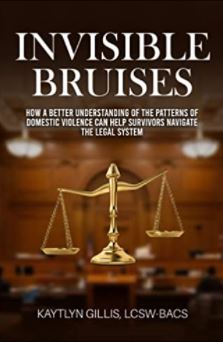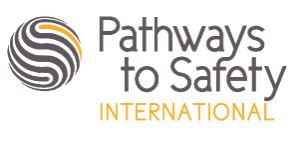Teen Dating
Bright Sky can help you:
- Understand what domestic violence can look like
- Spot the warning signs of domestic violence
- Evaluate the safety of a relationship
- Locate the nearest support services across the United States
- Learn how to help a friend, loved one, or colleague that may be affected
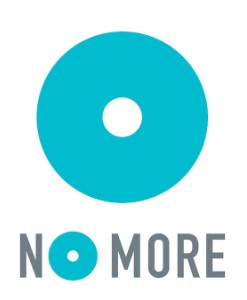
“With more than 1,400 allied organizations and over 40 state, local, and international chapters, NO MORE sparks grassroots activism, encouraging everyone—women and men, youth and adults, from all walks of life—to be part of the solution.” Click Here to learn more about NO MORE, and here How to Help Survivors
The NO MORE Silence, Speak Your Truth platform provides a safe and supportive space for people impacted by domestic violence to share their experiences, learn from other survivors, and connect to resources.
“Your story is personal and unique, but sharing it can be a healing experience for you and others.
Remember, healing is not linear and is different for everyone. It is important to stay patient with ourselves when setbacks occur in our process and forgive yourself for everything that may go wrong along the way.”
“NO MORE is a groundbreaking, global initiative comprised of the largest coalition of nonprofits, corporations, government agencies, media, schools, and individuals addressing domestic and sexual violence. We are committed to engaging, reaching, and working with people from diverse communities.” Click Here to GET HELP – Directory of domestic & sexual violence helplines & services ~ 200+ LOCATIONS AROUND THE WORLD! Click Here for the Global Directory Click Here for Additional RESOURCES Click Here to Learn How to Help

Click the Links below for more information on Peaceoverviolence.org
- Types of Abuse
- Am I in an Abusive Relationship?
- The Cycle of Violence, Power & Control
- Safety Planning
- Myths & Realities
- Guide for Friends & Families
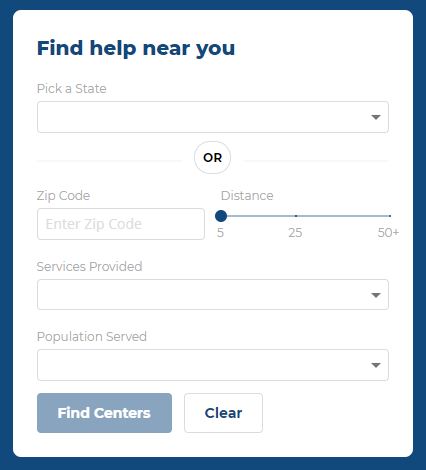
( centers.rainn.org )
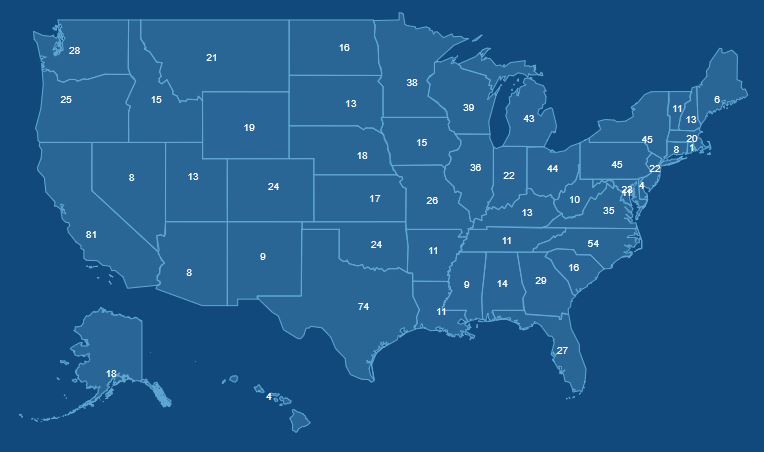
It’s helpful to have support in your own community after a sexual assault. Local service providers make it easy for you to access care, and they are knowledgeable about the laws in your area and local resources that can assist you.
It’s On Us
1156 15th St NW, Suite 1000 | Washington, DC 20005 | contact@itsonus.org | 202.908.5226
OUR MISSION
Educational Tools
“The goal is for these resources to be easy to use, free, and easily adaptable to different campus communities. It’s On Us has held individual interviews and focus groups with students and staff to collect information on the gaps that exist in sexual violence prevention educational materials around the country today. We have developed peer-to-peer resources that address the existing needs students identified. Each educational tool was developed based on direct feedback and needs addressed by students and drawn from the most up-to-date research and best-practices, which are cited within each document.
“Choose a topic from the list below for resources that might help you with your campus organizing or programming. “
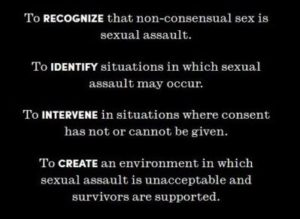
A Voice for the Innocent
A Voice For The Innocent is a safe, anonymous online community of support for victims of rape and sex abuse.
Join A Voice For The Innocent to share your support, or to share your story.
About
Blog Articles
Read Stories
Tell Your Story
Information & Support for Survivors
How to Report Sexual Assault & Abuse
Child Sexual Abuse (Church, Schools, Foster Care, etc.)
Grooming: Know the Warning Signs (Children, Teens, Adults)
Teen Dating
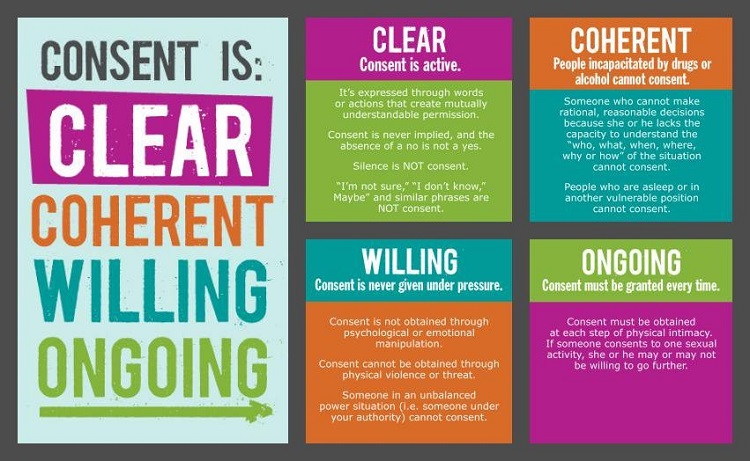
What Is Sexual Consent? | Facts About Rape & Sexual Assault (plannedparenthood.org)
Guide to Consent (healthline.com)
Sexual Violence is Preventable | CDC
Dating Violence Prevention | Youth.gov
Preventing Teen Dating Violence |Violence Prevention|Injury Center|CDC
Teen Dating Violence | National Institute of Justice (ojp.gov)
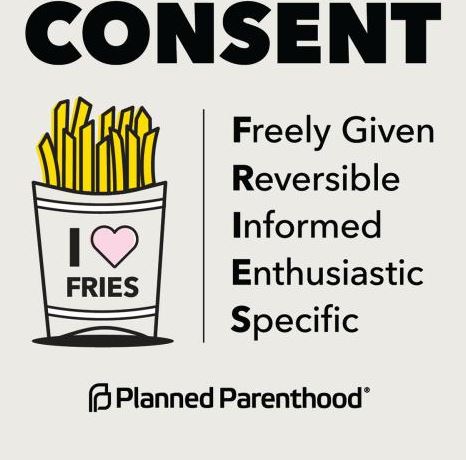
RAPE, ABUSE AND INCEST NATIONAL NETWORK
HOTLINE: 1-800-656-HOPE (4673)
Available in Spanish | En Español
ADVOCATES AND SHELTERS (Local Programs) listed by State, organized by County:
https://www.womenslaw.org/find-help/advocates-and-shelters
For a list and description of organizations that provide assistance for survivors and their families, visit: https://www.rainn.org/national-resources-sexual-assault-survivors-and-their-loved-ones
- Asian, Native Hawaiian and Pacific Islander Survivors
- Black Survivors
- Child Abuse/Sexual Abuse
- College Students
- Domestic, Dating and Intimate Partner Violence
- Human Trafficking
- Immigrant Survivors
- Incest
- Indigenous Survivors
- Latinx Survivors
- Legal Resources
LGBTQ Survivors
LGBTQ Survivors of Color
Male Survivors
Medical/Physical Health
Mental Health
Military Resources
Stalking
Sexual Assault Prevention
Suicide & Self-Harm
Survivors with Disabilities
“The RAINN app gives survivors of sexual violence and their loved ones access to support, self-care tools, and information to help manage the short- and long-term effects of sexual violence.
Find Support
“The app’s “Hotline” feature can connect you directly with one-on-one support from a trained support specialist on RAINN’s National Sexual Assault Hotline via phone or online chat. It’s free, confidential and available 24/7.
“You can also chat with other survivors in our peer-to-peer HelpRoom.”
Practice Self-Care
“The app’s “Self-Care” section contains exercises to help you take a moment for yourself as you heal. They include a Mood Tracker to help you reflect on how you’re feeling and figure out the best ways to care for yourself; relaxing visuals from The Monday Campaign to help you destress; and audio exercises from Headspace for calming meditation.”
Learn More
“The app’s “Learn” section includes helpful information on sexual violence topics, finding and giving support, and healing.
“You can also hear from survivors offering their own real-life stories of hope and healing.”
The RAINN app is available in the App Store and on Google Play. Download it today.
Each month, RAINN highlights a member of its National Leadership Council. The NLC is a group of dedicated individuals who have shown their commitment to RAINN’s mission of supporting survivors and ending sexual violence.
Whitney Wolfe Herd is the founder and CEO of Bumble, which puts women in control of the online dating experience, and a member of RAINN’s National Leadership Council. She recently became the youngest woman to take a company public and is a passionate advocate for women leaders in business.
Bumble CEO on Supporting Survivors and Creating Safer Dating Experiences
Excerpt:
What do we need to do as a country to prevent sexual violence?
“We need to promote discussions of healthy relationships from a young age as well as empowering folks of all genders—including men and boys—to be allies. Bystander intervention should be taught on every college campus. We also need to uplift and support the crucial work of organizations like RAINN, who are not only doing the work on the ground to educate communities and provide support to victims, but urging lawmakers to take action to, for instance, end the rape kit backlog.”
STUDENT SAFETY
https://www.rainn.org/safety-students
Safety & Prevention
https://www.rainn.org/safety-prevention
Safety for Parents
Safety for Students
Warning Signs
Protecting Others
Online Safety
Safe Web Browsing
Social Media Safety
Staying Safe
What Consent Looks Like
How to Respond if Someone is Pressuring You
Safety Planning
Safety Tips for Traveling
Alcohol Safety
Let’s Talk About…for all ages
Staying Safe on Campus
https://www.rainn.org/articles/staying-safe-campus
Alcohol Safety
https://www.rainn.org/articles/alcohol-safety
Steps You Can Take to Prevent Sexual Assault
https://www.rainn.org/articles/steps-you-can-take-prevent-sexual-assault
Your Role In Preventing Sexual Assault (Bystander)
https://www.rainn.org/articles/your-role-preventing-sexual-assault
What Consent Looks Like
https://www.rainn.org/articles/what-is-consent
How to Help Someone You Care About – Tips from RAINN
https://www.rainn.org/sites/default/files/HelpSomeoneOnePageRAINN.pdf
SelfCare After Trauma – Tips from RAINN
https://www.rainn.org/sites/default/files/SelfCareOnePageRAINN.pdf
Online Dating and Dating App Safety Tips
https://www.rainn.org/online-dating-and-dating-app-safety-tips#overlay-context=
#RAINNDAY & #LetsGetLoud “Need some social media inspiration? Try pairing a few of the posts with our RAINN Day graphics below.
“Browse the #RAINNDay and #LetsGetLoud hashtags on Instagram to see how students around the country are raising awareness for Sexual Assault Awareness and Prevention Month.
#LetsGetLoud & speak out about sexual assault during #RAINNDay. Make a difference: rainn.org/rainnday
#LetsGetLoud so survivors know that they are not alone. I’m making a difference on my campus with #RAINNDay on 4/14. You can too: rainn.org/rainnday
#LetsGetLoud so survivors know that they are believed and sexual violence is not tolerated on our campus. Learn how you can help at rainn.org/rainnday
#LetsGetLoud about protecting each other. I’m bringing my campus together on #RAINNDay to help end sexual assault. rainn.org/rainnday As a college-age person, we are at a high risk for sexual violence. #LetsGetLoud and stop sexual assault on college campuses. Find out how at #RAINNDay. rainn.org/rainnday
SPREAD THE WORD ON SOCIAL MEDIA!!
“You can play an important role in stopping sexual violence and connecting survivors with the support they deserve. The best part? You only have to lift a finger. Acting with RAINN on social media gives you a chance to have a voice in the conversation about sexual violence.
Share the messages below on social media:
Connect survivors with help: The National Sexual Assault Hotline provides free, 24/7 support to survivors of sexual assault and their loved ones. Reach those who need this valuable service by sharing the hotline information on social media.
If you have been affected by sexual assault, you are not alone. @RAINN provides free, confidential support 24/7 at online.rainn.org.
@RAINN provides free, 24/7 support for survivors of sexual assault and their loved ones at 800.656.HOPE and online.rainn.org.
Sexual assault is never your fault. @RAINN now offers free, confidential Spanish support services online 24/7 at rainn.org/es.
Educate your friends: Debunk myths and educate your network about sexual violence. Share a statistic to shed light on the issue. Every 73 seconds, another American is sexually assaulted. Learn more and take action with @rainn at rainn.org. 98% of rapists will never spend a day in jail. Help bring rapists to justice with @rainn at rainn.org.
Advocate for survivors of sexual violence: Use your voice to create a ripple effect of change for survivors among your peers, in your community, or even on Capitol Hill.
Raise awareness and educate students about sexual assault resources from @RAINN with #RAINNDay! Learn more at rainn.org/rainnday.
Support funding to help victims of sexual violence and hold perpetrators accountable. rainn.org/action-center @rainn #ActWithRAINN.”
 Public Policy and Action – Interactive Map – Laws of Your State
Public Policy and Action – Interactive Map – Laws of Your State
RAINN Needs Your Voice
Countless survivors’ kits are languishing on shelves in evidence rooms and labs across the U.S. Even today, some survivors must wait nearly a decade to get their kits processed and tested. Right now, approximately 200,000 kits wait to be tested. Today, we have a chance to make a difference.
The U.S. Senate is currently deciding how much to spend on the backlog and your voice can be the difference between more funding or less.
Stand With Survivors and Ask Your Senators to End the Backlog. Justice Delayed is justice denied. Urge your senators to do their part to help end the rape kit backlog today.
Send email = https://p2a.co/1jqx2dk?p2asource=FY21_BacklogAlert_email1_all
How RAINN’s Policy Team Works Help Survivors https://www.rainn.org/news/how-rainns-policy-team-works-help-survivors
“Recently, as Congress has considered police reform legislation, RAINN has urged House and Senate leaders to include a number of additional changes to help survivors of sexual violence. RAINN’s suggestions address issues that disproportionately impact Black victims of sexual violence, especially Black girls, who are overrepresented in juvenile justice data. According to The Sex Abuse to Prison Pipeline: The Girls Story, 76 percent of girls involved with the justice system have histories of physical and sexual abuse.”
From:
10 Red Flag Warning Signs of Abuse
The anatomy of an unhealthy, one-sided relationship.
Posted October 30, 2020 | Abigail Brenner, MD
- All-consuming jealousy. When a person wants your full attention and time 24/7 and gets angry and demanding when you spend time with anyone else, you know you’re in trouble. Extreme possessiveness is pathological
- The attempt to control all aspects of a partner’s life. What you do and how you do it, where you go, who you’re with, what you like spending time doing, how you dress—virtually every aspect of your life—is up for scrutiny and control. Demanding an accounting of your time becomes the norm. The feeling for the abused partner is that of being a possession rather than an independent person.
- The attempt to isolate the partner from family and friends. This is a version of divide and conquer. The abuser wants full control and the only way to accomplish that is to severely limit contact with people who are close to the abused partner. Not only that, but the abuser is attempting to limit any negative feedback offered by friends and family about the abuser. If isolation/alienation from close others can’t be accomplished, the abuser may use the tact of constantly criticizing close family and friends so as to drive a wedge and to, at least, limit the contact of others.
- Violating your privacy. Constantly checking up on their partner, the abuser will think nothing of checking your phone, emails and texts, computers, etc. Since you “belong” to them nothing is private anymore.
- Treating you with disrespect by blaming, shaming, and putting you down. The abuser will find fault with everything you do. They will attempt to make you feel unworthy and unloved. And, of course, if you grow to believe that you are unworthy and unloved, the attachment to the one who professes to be the only one who truly loves you becomes all the more important. The abuser may resort to many forms of humiliation including bullying, calling the abused by derogatory names, embarrassing their partner in front of others, insulting, infantilizing, and acting out in public.
6. Blaming you for their bad behavior. Since you are the center of their world, the one they’re the closest to, the way you behave must be the reason why they are acting so badly. You, the abused, made them, the abuser, behave badly. The abuser will make you feel responsible for them and their behavior and will make you feel guilty that you didn’t do what they wanted you to do.
7. Threatening you with harm, or alternately, with hurting themselves if you don’t do what they want. Their inability to control the situation may cause them to accelerate their behavior taking it several notches up from verbal to physical. If they are unable to get satisfaction in controlling you they may up the ante to threatening you with bodily harm, and/or harming those you care about, especially children, and beloved pets.
8. Destroying your personal possessions. The abuser may act out against you by defacing or destroying personal things that are important to you. This is a way of punishing you for not bending to their will, for not doing as they say. It’s also an attempt to deprive you of the things that are personally yours, things you keep around that may support and ground you, things that define you separately from anyone else.
9. Inability to show compassion toward anyone, but especially you. The person who abuses may lack the ability to have compassion in the first place. But if they were ever able to be compassionate their frustration over time may make them incapable or unwilling to feel for their partner’s predicament. If they could be compassionate that would have to allow for the fact that their partner has a life and interests of their own. An abuser often doesn’t want you to have and do anything that doesn’t include them.
10. Pressuring you to engage in what is important to them, at the expense of what’s important to you. The abuser may try to enforce lifestyle, friends, certain behaviors, and preferences on you while robbing you of your opinions, preferences, and relationships. They have a real lack of interest in what’s important to you.
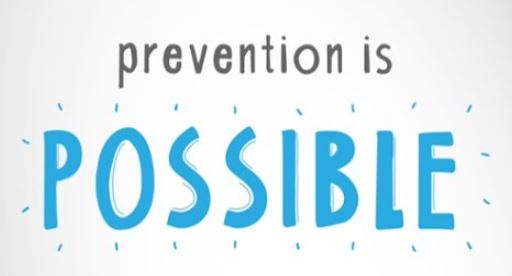
Assault Prevention in Relationships
If you’ve identified that your partner exhibits controlling or aggressive behaviors and you’re afraid to address these issues within your relationship, it’s time to get help.
Victims often don’t realize the dangers of their situation until it’s too late — the dynamic between the abuser and abused is strategically designed to discourage the victims from acknowledging or addressing the problem. Intimate partner abuse and violence are never okay. They’re more common than you might think, and it’s wholly within your power and your rights to get out safely.
Ways of Domestic Violence Prevention
https://www.marriage.com/advice/domestic-violence-and-abuse/ways-of-domestic-violence-prevention/
20 Effective Ways of Domestic Violence Prevention (marriage.com)
Preventing Intimate Partner Violence |Violence Prevention|Injury Center|CDC
Relationships and Violence Prevention – MSU Denver
Preventing Interpersonal Violence in Relationships – PsychAlive
10 Signs of a Healthy Relationship – One Love Foundation (joinonelove.org)
10 Signs of an Unhealthy Relationship – One Love Foundation (joinonelove.org)
ARE YOU A CONCERNED PARENT, TEACHER, EDUCATOR, COUNSELOR, ADMINISTRATOR, ETC.???
We need to teach our children how to prevent violence in relationships!
Peace Over Violence – In Touch with Teens Curriculum
In order to help youth develop and maintain healthy, violence-free relationships, Peace Over Violence has been implementing the In Touch With Teens Violence Prevention curriculum in junior high and high schools and other community based youth organizations. The eleven-unit curriculum empowers youth to have healthy relationships by providing information about power and control, elements of healthy relationships and healthy sexuality, and media literacy as well as education on sexual harassment, sexual assault, and dating violence. The curriculum further addresses the development of pro-social skills such as empathy, impulse control, effective communication, problem solving, and bystander accountability. Continue Reading
SIECUS – Sex Ed for Social Change
“Teen Dating Violence: Sex ed is a prevention strategy”
“…teen dating violence is not being talked about nearly enough. We need to spread awareness to make sure young people are equipped with the information they need to understand and address abusive relationships. And I bet you can guess where this is going…
That’s right: sex ed!
Comprehensive sex education can provide young people with the exact information and skills they need to understand and address TDV before they become teenagers. It includes topics and lessons on healthy relationships, identifying abusive behavior, communication, consent, and boundary setting/respecting. As outlined by the National Sexuality Education Standards, this type of instruction can teach young people to: ” Continue Reading
SIECUS – Teen Dating Violence: Sex ed is a prevention strategy
Indigenous / Native American Organizations
What does National Indigenous Women’s Resource Center do?
Native Womens Wilderness is an organization whose mission is to inspire and raise the voices of Native Women in the outdoor realm and encourage a healthy lifestyle grounded in the wilderness. Native Womens Wilderness also works on missing and murdered Indigenous women awareness.
Missing and Murdered Indigenous Women USA is a community-led initiative that focuses on the missing and murdered Indigenous women (MMIW) epidemic on both sides of the Canadian-U.S. border. There are systemic causes of the violence that causes the disproportionate rate of missing and murdered Indigenous women and girls, of which a great many cases go unsolved.
Across the United States and Canada Native Women and girls are being taken or murdered at an unrelenting rate. Native Hope exists to address the injustice done to Native Americans. We dismantle barriers through storytelling and impactful programs to bring healing and inspire hope.
Native Hope Resource Guide Addressing Native American Issues as a Non-Native for Allies
StrongHearts Native Helpline (1-844-762-8483, or strongheartshelpline.org) is a 24/7 safe, confidential and anonymous domestic, dating and sexual violence helpline for American Indians and Alaska Natives, offering culturally-appropriate support and advocacy.
The Center provides legal assistance to indigenous peoples of the Americas to combat racism and oppression, to protect their lands and environment, to protect their cultures and ways of life, to achieve sustainable economic development and genuine self-government, and to realize their other human rights. The Center’s Safe Women, Strong Nations project partners with Native women’s organizations and Indian and Alaska Native nations to end violence against Native women and girls. Our project raises awareness to gain strong federal action to end violence against Native women; provides legal advice to national Native women’s organizations and Indian nations on ways to restore tribal criminal authority and to preserve tribal civil authority; and helps Indian nations increase their capacity to prevent violence and punish offenders on their lands.
Alliance of Tribal Coalitions to End Violence
Tribal Coalitions: Increase awareness of domestic violence, sexual assault, and sex trafficking against American Indian and Alaska Native women.
Enhance the response to violence against women at the tribal, federal, and state levels; and identify and provide technical assistance to coalition membership and tribal communities to enhance access to essential services.
National Sexual Violence Resource Center
717-728-9740 x144 / 800-692-7445
HELP * HOPE * HEALING
“There is a national network of community-based rape crisis centers, with centers available in every state and territory. www.nsvrc.org These centers exist across the United States to provide supportive services to victims of sexual assault. While the specific services available vary by location, services are confidential and may include:
- advocacy,
- accompaniment during medical exams and law enforcement interviews,
- education,
- follow-up services,
- and referrals to other resources.”
ADVOCATES AND SHELTERS (Local Programs) listed by State, organized by County:
“Every state and territory also has an organization designated to coordinate the activities of rape crisis efforts and represent that state or territory as its coalition.
NSVRC maintains a Directory of State and Territory Coalitions, as well as a Directory of Victim/Survivor Support Organizations that provide services to survivors. Please contact your state or territory’s coalition to find local resources.
NSVRC – A Guide for Friends and Family of Sexual Violence Survivors. Download Guide:
https://www.nsvrc.org/sites/default/files/201710/friends_and_family_guide_final.pdf
ADVOCATES AND SHELTERS (Local Programs) listed by State, organized by County:
About WomensLaw.org
(En Español)
Despite its name, WomensLaw.org provides information that is relevant to people of all genders, not just women. Our Email Hotline will provide legal information to anyone who reaches out with legal questions or concerns regarding domestic violence, sexual violence, or any other topic covered on WomensLaw.org.
About Abuse
These pages provide an overview of domestic violence and sexual assault as well as more detailed information about specific forms of abuse.
- Am I Being Abused? (Danger Assessment; Signs of Abuse)
- Forms of Abuse (Abuse Using Technology; Domestic Violence/Teen Violence; Emotional Abuse; Financial Abuse; Reproductive Abuse & Coercion; Sexual Abuse & Exploitation; Stalking & Cyberstalking; Litigation Abuse)
- Abuse in Specific Communities (Abuse Among People Living with AIDS/HIV; Abuse in Immigrant Communities; Abuse in Tribal Communities; Information for Teens & Young Adults; LBGTQIA Victims; Male Victims; Abuse in Jewish Community; Elder Abuse
- Safety Tips (Domestic Violence Victims; Stalking Victims; Safety Planning with Children; Safety in a Confidential Address; Safety in Court; Safety in Rural Areas; Safety While Using the Internet; Safety While Using Social Media
- In the Workplace (Sexual Harassment by a Co-Worker or Boss; Workplace Restraining Orders (filed by Employer)
Find Help (US Map)
Find Help for Yourself and for Others | WomensLaw.org
Click on your state (in the map or in the drop-down menu) to find contact information for:
- advocates in local domestic violence programs and shelters;
- legal assistance organizations;
- courthouse locations where you can file for a protection order; and
- sheriff departments. If you need to talk to someone about an abusive relationship, you can call the National Domestic Violence Hotline at 1-800-799-7233.
Legal Information (US Map)
Legal Information | WomensLaw.org
- Know the laws – By State
- Preparing for Court – By Yourself
- Immigration
- Federal Gun Laws
- Domestic Violence in the Military
- Videos
Helping Others
Helping Others | WomensLaw.org
- Family, Friends, Co-Workers
- Advocates
- Lawyers
- Doctors, Healthcare Professionals
- Salon Professionals
Womens Law Email Hotline: WomensLaw.org Email Hotline
Other Helpful Information:
Advocates and Shelters | WomensLaw.org (drop-down menu for your State)
National Organizations | WomensLaw.org (listed by subject matter)
Chat Rooms and Message Boards | WomensLaw.org
There are a variety of support services available to victims of domestic violence and sexual assault on the Internet. We have listed some of these resources.
The Journey
Each fall, the Monarch Butterflies in Maine begin an unbelievable Journey to a hilltop in Mexico.
How do they do it?
They focus on the Goal, not the Difficulties.
Each day they take their bearings and set off, allowing their Instincts and Desire to steer them.
They Accept what comes ~
Some winds blow them off course,
Others speed them along.
But, they keep flying. . .
Until. . .
One day. . .
They Arrive!
STALKING
Stalking occurs when someone repeatedly harasses or threatens someone else, causing fear or safety concerns. Most often, stalking occurs by someone the victim knows or with whom they had an intimate relationship.
Help prevent stalking by knowing the warning signs and how to get help.
https://www.cdc.gov/violenceprevention/datasources/nisvs/preventingstalking.html
FAST FACTS
https://www.cdc.gov/violenceprevention/intimatepartnerviolence/stalking/fastfact.html
Facts About Stalking
According to the National Intimate Partner and Sexual Violence Survey (NISVS):
- Stalking is common. About 1 in 6 women and 1 in 17 men have experienced stalking in their lifetimes.
- Stalking starts early. Nearly 54% of female victims and 41% of male victims experienced stalking before the age of 25.
- Stalking impacts the physical and mental health of victims. Research shows stalking can lead to depression and post-traumatic stress disorder. About 68% of female and 70% of male victims experienced threats of physical harm during their lifetime.
Common Stalking tactics can include:
- Unwanted phone calls
- Unwanted emails, instant messages, text messages, voice messages, or social media messages
- Approaching a victim or showing up unwanted, such as at the victim’s home, workplace, or school
- Leaving strange or potentially threatening items for the victim to find
- Watching, following, or tracking a victim
- Sneaking into the victim’s home or car and doing things to scare the victim or let them know the perpetrator had been there
PREVENTION IS POSSIBLE.
Everyone can work together to know, name, and stop stalking by:
- Helping others define and recognize stalking behaviors
- Mobilizing men and boys as allies in prevention efforts
- Creating and supporting safe environments within relationships, schools, and communities through programs and policies that promote healthy relationships
Need help? Know someone who does?
Contact your local service provider or a national hotline:
- Victim Connect: 1-855-4VICTIM (1-855-484-2846)
- National Domestic Violence Hotline: 1−800−799−7233 or TTY 1−800−787−3224 En Español
- The National Sexual Assault Hotline: 1-800-656-HOPE (4673)
Cyber Civil Rights Initiative
HOTLINE: 1-844-878-CCRI (2274)
Posting Nude/Sexual Images Without Consent
(“Revenge Porn” )
is a FEDERAL CRIME.
Cyber Civil Rights Legal Project
“The Cyber Civil Rights Legal Project helps victims of nonconsensual pornography by providing them legal assistance on a pro bono basis. The Cyber Civil Rights Legal Project is founded on the principle that people have a right of privacy in their intimate photographs and videos, and that the public, online dissemination of that media without consent is an invasion of that sexual privacy amounting to a “cyber civil rights” violation.”
US Attorneys who are providing pro bono legal assistance: https://www.cybercivilrights.org/professionals-helping-victims
LEGAL NOTICE:
Revenge porn is becoming (OR has already become) a federal crime as the SHIELD Act has been passed, according to Fox News. The SHIELD Act is an amendment to the Violence Against Women Reauthorization Act of 2021. (Revenge Porn Could Soon Become A Federal Crime — Here’s What That Means – Chicks On The Right (chicksonright.com)
The Violence Against Women Reauthorization Act of 2021 criminalizes the nonconsensual distribution of nude or sexually explicit images. Offenders could be imprisoned for up to two years.
“For victims of nonconsensual pornography, technology today makes it possible to destroy a person’s life with a single click,” Rep. Jackie Speier, D-Calif., said in a statement. Speier continued, “The damage caused by these attacks can crush careers, tear apart families, and, in the worst cases, has led to suicide.”
For Parents, Family Members, Teachers, Educators, Young Adults & Teens
Internet Safety for Kids | How to Keep Your Kids Safe Online
(Source: Consumernotice.org | Written By : Terry Turner | Edited By : Kim Borwick | Last Modified: August 18, 2021)
Threats to children’s internet safety include invasions of privacy, cyberbullying, sexting and harassment. Options to protect your children include parental controls, apps and tracking software. But the most effective way to keep your kids safe is to talk with them about online risks, how to avoid them and how they can come to you when something goes wrong.
Internet safety for kids depends on parents being aware of online risks and understanding how to help their children and teens avoid them.
Almost every American child and teen has access to the internet. They socialize in online games or on smartphones just as they would on a playground. They live largely in a digital community. But like any community, there are risks and dangers.
Parents are the best suited to monitor kids’ online activity. They are also the most trusted adults most kids will turn to if they experience online dangers. Understanding what your children or teens do online is vital to protecting them from digital threats. . .
What Are Kids Doing Online?
~ 30 percent have used the internet in ways their parents wouldn’t approve
~ 21 percent have visited sites where they can chat with strangers
~ 17 percent have visited porn sites
~ 11 percent have visited sites that offer ways to cheat on homework
~ 4 percent have visited online gambling sites
Source: Children’s Internet Usage Study, Center for Cyber Safety and Education (Grades 4-8)
TOPICS in article:
♦ How Children and Teens Get Online
♦ Online Dangers to Discuss with Your Kids
♦ How to Set Rules
♦ Steps You Can Take to Protect Your Children Online
♦ Using Tech and Apps to Protect Your Kids Online
♦ Monitoring, Tracking and Limiting Your Child’s Online Activity
♦ Filtering Out Inappropriate Content
♦ How to Teach Your Kids to Use Their Smartphones Responsibly
♦ Your Child’s First Smartphone | 5 Things to Think About
♦ Make Sure Your Teen Understands the Dangers of Texting and Driving
♦ Teaching Your Teens How to Use Social Media Safely
♦ Tips for Teen Safety on Social Media
♦ Cyberbullying Prevention
♦ Signs Your Child Is Being Cyberbullied
♦ What Parents Can Do to Deal With Cyberbullies
♦ Teach Your Child How to Stand Up for Cyberbully Victims
♦ How to Talk to Your Teens About Sexting | 5 Things to Tell Your Teens About Sexting
♦ What You Should Know About Your Kids and Online Gaming
♦ How to Keep Your Child Safe in Online Gaming
♦ What to Do If Your Child’s Safety Is Threatened Online

THORN Digital Defenders
(Ashton Kutcher and Demi Moore, Co-Founders) THORN
Text “NOFILTR” to 741741 for immediate assistance for “Grooming”
If you’re being sextorted, GET HELP NOW – TEXT “THORN” TO 741741
Thorn, aka Digital Defenders of Children; Ashton Kutcher’s organization driving tech innovation to fight child trafficking and the sexual exploitation of children.
About Our Fight Against Sexual Exploitation of Children
Our Work to Stop Child Sexual Exploitation
We build technology to defend children from sexual abuse.
We refuse to live in a world where the technology exists to help kids but simply isn’t being used. We build powerful products, lead new programs, maintain essential resources, and develop awareness campaigns to attack the issue from all sides. Technology must be part of the solution.
ACCELERATE victim identification. We identify critical technical needs and produce tools that allow law enforcement to stay ahead of perpetrators and identify more children.
Since 2016, Spotlight has helped law enforcement find kids faster. Our flagship product was developed based on the insights gained from our first survivor survey.
Spotlight accelerates victim identification and helps law enforcement make the best use of the critical time they have to focus on finding more child sex trafficking victims.
EQUIP platforms. Many small and mid-size companies do not have the resources or knowledge to implement child safety procedures and tools, making their platforms vulnerable to abusive content and behavior. We offer resources and tools for companies to help protect kids on their platforms.
Our first step in equipping platforms is the Sound Practices Guide, offering best practices and concrete steps to for companies of all sizes to help protect kids on their platforms, including the Industry Hash Sharing program and PhotoDNA.
Thorn’s commercial product, Safer, is the first comprehensive solution for platforms to identify, remove and report child sexual abuse material.
EMPOWER the public. Here’s where we share what we’ve learned. It’s all about preventing further abuse. We’re getting the word out – increasing awareness and starting conversations.
THORN’s Vision
Eliminate child sexual abuse material from the internet.
Working to deter the problem ~ Child Sexual Abuse Material
The internet has made it too easy for abusers to share child sexual abuse material (legally known as child pornography). They create images and videos with an audience in mind. That content gets shared widely beyond the initial targets – recirculating the image, perpetuating the abuse and retraumatizing the child.
Help prevent child sexual abuse.
BE AWARE.
Educate yourself on child abuse and the intersection with technology.
TALK.
Stay active and engaged with your community to keep an eye out for signs of child abuse. Talk to your children about abuse and the unique risks on the internet.
GET TO KNOW THE CHILDREN IN YOUR COMMUNITY.
They won’t be able to ask for help once something goes wrong and will need you to have your eyes open.
SUPPORT ORGANIZATIONS
… working to prevent abuse and provide survivors with resources. Get to know those in your community as well.
Do you know what GROOMING is?
Do you know what SEXTORTION is?
What is grooming?
Text NOFILTR to 741741 for immediate assistance.
A term used broadly to describe the tactics abusers deploy through the internet to sexually exploit kids and teens.
See also: online safety, grooming, groomer
https://nofiltr.org/
https://nofiltr.org/grooming/#talks
https://nofiltr.org/resources/
We’ve all heard about it or seen it (maybe on snap, in school, or even with friends) someone’s nudes are getting passed around. But who is to blame?
What about the rando that thought it’d be cool to pass it on to 10 friends in a group chat?
Nah, sharing someone else’s nudes is never okay.
STOP SEXTORTION
SEXTORTION
YUP. IT’S A THING.
It’s the threat to reveal intimate images to get you to do something you don’t want to do
If you’re being sextorted, GET HELP NOW – TEXT “THORN” TO 741741
Get Help
From: Stop Sextortion
SEXTORTION
YUP. IT’S A THING.
It’s the threat to reveal intimate images to get you to do something you don’t want to do
TIPS FOR ADULTS
Talk to your kids about sextortion.
THIS IS HARD, BUT YOU’RE ALREADY DOING GREAT BY BEING HERE.
Your children are safer because of your support and guidance through all of life’s challenges. Safety in the digital age is new, and chances are your children feel more comfortable navigating digital communities than you do, while knowing less than they need to stay safe. There are a few things you can do to help your child avoid getting into tricky, and sometimes dangerous, situations like sextortion.
You play an important role in students’ lives and as new threats emerge, it is important to stay ahead of the trends. Teens clearly told us that you are often the first line of defense.
When an individual experiences sextortion, they’re often experiencing it simultaneously on multiple platforms. We know technology can be misused, so it is important to adopt industry standard best practices so that bad actors have fewer places to hide and victims can be adequately protected. Be sure to invest in your safety policies early to keep sextortion off your platform.
Our kids are trying to navigate community and connection in the digital age, while we’re trying to keep up with keeping them safe. Unfortunately, technology moves faster than our laws are able to respond to new abuse trends. By learning about these trends – like sextortion – and including them in your policy agenda, you can help kids feel safe and supported.
From: Stop Sextortion
THORN FOR PARENTS
Announced on September 9, 2021. . .
For parents concerned about their child’s digital safety as they grow up online, we’ve compiled resources, developed conversation guides, and much more to help parents navigate even the most awkward conversations with care and confidence. Here for your talks, awkward pauses and all.
BE YOUR KID’S SAFETY NET
Kids today face a very different set of challenges. There’s a whole new landscape where a child’s relationship with technology and normal sexual development overlap, with a whole new set of experiences online. And they need your help to navigate it safely.
TOPICS: Sexting & Nudes | Device Access & Monitoring | A Balanced Approach |
Women Against Abuse
INTERNET SAFETY
Technological advances have allowed intimate partner violence to take new forms, including access to private information, control over online accounts, and the use of electronic devices to track one’s whereabouts.
If you are seeking information about domestic violence and ways to get help, it is possible your partner can track this information.
It is vital to protect your online activities and understand the ways in which technology may compromise your safety.
Your online activity can be monitored through a number of ways, including spyware, hacking, and keystroke loggers. Even if you are careful about deleting your browser history, it is still possible for someone to gather information about what you are doing with your computer.
Whether or not someone has direct access to your computer, it is still possible for them to remotely hack into your computer.
Please review the following tips and information from the National Network to End Domestic Violence:
- If you think your activities are being monitored, they probably are. Abusive people are often controlling and want to know your every move. You don’t need to be a computer programmer or have special skills to monitor someone’s computer and Internet activities—anyone can do it and there are many ways to monitor with programs like Spyware, keystroke loggers and hacking tools.
- It is not possible to delete or clear all the “footprints” of your computer or online activities. If you are being monitored, it may be dangerous to change your computer behaviors such as suddenly deleting your entire Internet history if that is not your regular habit.
- If you think you may be monitored on your home computer, be careful how you use your computer since an abuser might become suspicious.
- You may want to keep using the monitored computer for innocuous activities, like looking up the weather. Use a safer computer to research an escape plan, look for new jobs or apartments, bus tickets, or ask for help.
- Email and Instant/Text Messaging (IM) are not safe or confidential ways to talk to someone about the danger or abuse in your life. If possible, please call a hotline instead. If you use email or IM, please use a safer computer and an account your abuser does not know about.
- Computers can store a lot of private information about what you look at via the Internet, the emails and instant messages you send, internet-based phone and IP-TTY calls you make, web-based purchases and banking, and many other activities.
- It might be safer to use a computer in a public library, at a trusted friend’s house, or an Internet Café.
The above information is taken from the National Network to End Domestic Violence, Internet and Computer Safety page.
In addition, learn about Facebook safety with the Privacy and Safety on Facebook guide from the National Network to End Domestic Violence!
Internet Safety
Web Browsers store a history of all the pages you visit during your time on the Internet. It is imperative that you remove this information from your computer so that an abuser cannot discover it. Please remember to do this procedure before you log off the Internet.
CAUTION: If you are using your abuser’s computer, you may be leaving a trail that can be traced to this web site. Be sure to clear the view history of the web browser when you are through.
Instructions for Clearing the View History in your Web Browser:
Using the toolbar of your web browser, find the menu selection that gives you view options.
- Microsoft Internet Explorer: Use the View button, then select Options, then Navigation. In the History section, select Clear History, then OK.
- Netscape Navigator: Use the Options button, then select Network Preferences, then both Clear Memory Cache and Clear Disk Cache, then OK.
- Firefox: Open the Tools menu, then select Options. Open the Privacy tab and select “Cache” sub-category. Click the “Clear” button and then click OK to clean cache.
- AOL: Click on the Members menu, click on Preferences click on the www icon; select Advanced and then Purge Cache.
Be aware that this is not foolproof. An observant computer user may notice that the history is gone, and get suspicious.
If you feel you may be at risk if your abuser discovers you were using the Internet, call 911 or RAINN at 1.800.656.HOPE, The Rape, Abuse & Incest National Network.
(Source: aftersilence.org
“The above information has been adapted from mcleancountyil.gov, and is provided for guidance only.”)
Internet Safety – The Hotline
Call 1.800.799.SAFE (7233)
Internet Safety
Stay safe. Stay connected.
Technology and the Internet are powerful tools for anyone experiencing domestic violence. They can be essential resources to access help and information, and valuable platforms to connect with friends, family members, advocates, and service providers.
Unfortunately, they can also be used by abusive partners to begin, continue, or escalate abuse, making it all the more important to ensure your safety online.
Read more at Internet Safety – The Hotline
Love is respect
Call 1.866.331.9474
- Text: LOVEIS to 22522
- Live Chat
Safety online – love is respect
Most of us spend a lot of time online. Pretty much everything we do can now be done on the Internet, including accessing information, keeping in touch with others, and getting help when we need it. Unfortunately, such frequent use (and the ways in which information is collected every time we go online) means partners who are abusive have more ways than ever to access your information and monitor your movements and behaviors.
Remember:
- Your computer and cell phone use can be monitored without you knowing it.
- Your history can never be completely erased from a computer or device, even if you browse in “private” or “incognito” mode.
- Email can be intercepted like physical mail.
- Global Positioning System (GPS) trackers can be placed in your car or on items like your purse or cell phone.
- love is respect advocates are available 24/7 to help you identify ways to take extra precautions when using technology.
Always remember to keep your safety in mind when contacting love is respect and accessing our services.
Be sure to clear any websites you wouldn’t want your partner to see from your browser history, especially after visiting this website.

Keep your Online Life Private.
This is definitely hard to do with Facebook, Instagram, Twitter, and the self-disclosure they all promote. You may already know by now that putting your address on the Internet is incredibly dangerous, but also think twice about sharing your current location.
Kristin Jackson once saw an Instagram public post with the caption that read, “So drunk, must get home,” and she had tagged her location!
Try to refrain from tagging your location every time you post, and definitely use the privacy options to your advantage. If anything, it will keep you safe and give you an element of mystery.
Source:
Jackson, Kristin Collins. https://www.bustle.com/articles/32325-10-ways-to-help-protect-yourself-from-sexual-assault-even-though-you-shouldnt-have-to. “10 Ways to Help Protect Yourself From Sexual Assault — Even Though You Shouldn’t Have To.” (Sept. 25, 2014.)
DID YOU KNOW…
YOU CAN DOWNLOAD A TECH SAFETY APP
TO PROTECT YOUR TECHNOLOGY, PRIVACY AND SAFETY!
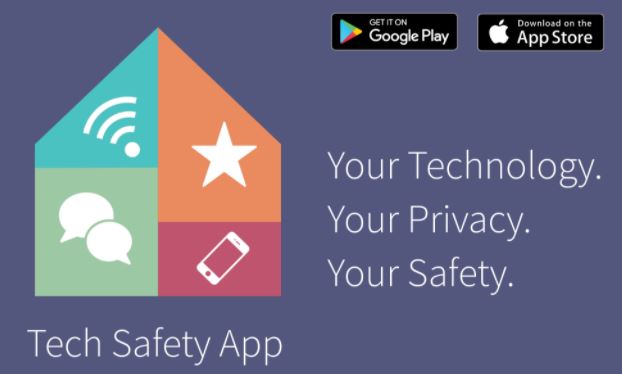
Tech Safety
“Computers, tablets, phones, apps, and social network sites impact how we connect to the world every day. They can offer help, valuable resources, and support if you are experiencing domestic violence or stalking. As you use technology and plan for your safety in these situations, it is also important to be aware of the risks. The information below can help you to use technology in more informed, safer ways. These tips provide suggestions for you to be aware of. But you are the only one who can decide what is best for you and your safety.”
https://www.safehorizon.org/tech-and-cyber-safety/
- English and Spanish
- Online Safety
- Networking Safely on Social Media
- Phone Safety
You can download Tech Safety Tips in English and Spanish.

KEEPING CHILDREN SAFE ONLINE
(US Dept of Justice)
From Keeping Children Safe Online (justice.gov)
“Due to COVID-19, kids and adults are online more than ever, often unsupervised in the same space.
“Help kids stay safe.”
“Parents should stay involved in their digital world, know the apps they use, use parental controls where possible, and block and report people who make them feel uncomfortable.
“Kids should talk with a trusted adult so they understand online risks, only chat with people they know, ensure their online accounts are private, block people they don’t know or trust, and trust their instinct—if something makes them feel uncomfortable, tell a trusted adult about it.
“Kids and parents should stay alert—people aren’t always who they seem in online environments where identity is easy to fake.
“Stay safe at home. Stay safe online.
“To report an online child sexual exploitation offense, call 911 or go to report.cybertip.org.”
Online Safety (for Teens) – Nemours KidsHealth
(kidshealth.org/en/teens/internet-safety.html)
Lauren’s Kids
Our mission is to prevent child sexual abuse through education and awareness and to help survivors heal with guidance and support. https://laurenskids.org/
Lauren’s Kids is based in South Florida and educates adults and children about sexual abuse prevention through in-school curricula, awareness campaigns, and speaking engagements around the country and the world.
The Issue of Child Sexual Abuse | Includes: Tactics of the perpetrator and Signs a child may be a victim of sexual abuse
Combatting Human Trafficking | Family Safety
SAFER, SMARTER FAMILIES | Digital Health & Safety Resources
During this uncertain time of school closures, childcare pressures, and increased reliance on digital devices, it is important for families to be mindful of safety – the FBI has released guidance for parents to stay alert, especially when 1 in 5 children who touch a digital device will be sexually solicited online.
Parents – fear not! We are here to provide you with the knowledge, language, and activities necessary to teach your elementary school aged child(ren) about personal safety in a way that is comfortable, accessible, and fun. (Have a middle or high schooler in your home? Visit SaferSmarterFamilies.org for lessons designed for older children and teens!)
Lauren’s Kids has posted 6 digital lessons and activities from the Blueprint for Building Safer, Smarter Families resource, designed for use with elementary school students.
For older children in middle school and high school, see SAFER SMARTER FAMILIES
Safer, Smarter Families Family Safety Toolkit
The Safer, Smarter Families Family Safety Toolkit is designed to help your family address personal safety, abuse prevention, and social-emotional learning in a way that is comfortable and accessible for both you and your children.
For Parents, Family Members, Teachers, Educators, Young Adults & Teens
Internet Safety for Kids | How to Keep Your Kids Safe Online
(Source: Consumernotice.org | Written By : Terry Turner | Edited By : Kim Borwick | Last Modified: August 18, 2021)
Threats to children’s internet safety include invasions of privacy, cyberbullying, sexting and harassment. Options to protect your children include parental controls, apps and tracking software. But the most effective way to keep your kids safe is to talk with them about online risks, how to avoid them and how they can come to you when something goes wrong.
Internet safety for kids depends on parents being aware of online risks and understanding how to help their children and teens avoid them.
Almost every American child and teen has access to the internet. They socialize in online games or on smartphones just as they would on a playground. They live largely in a digital community. But like any community, there are risks and dangers.
Parents are the best suited to monitor kids’ online activity. They are also the most trusted adults most kids will turn to if they experience online dangers. Understanding what your children or teens do online is vital to protecting them from digital threats. . .
What Are Kids Doing Online?
~ 30 percent have used the internet in ways their parents wouldn’t approve
~ 21 percent have visited sites where they can chat with strangers
~ 17 percent have visited porn sites
~ 11 percent have visited sites that offer ways to cheat on homework
~ 4 percent have visited online gambling sites
Source: Children’s Internet Usage Study, Center for Cyber Safety and Education (Grades 4-8)
TOPICS in article:
♦ How Children and Teens Get Online
♦ Online Dangers to Discuss with Your Kids
♦ How to Set Rules
♦ Steps You Can Take to Protect Your Children Online
♦ Using Tech and Apps to Protect Your Kids Online
♦ Monitoring, Tracking and Limiting Your Child’s Online Activity
♦ Filtering Out Inappropriate Content
♦ How to Teach Your Kids to Use Their Smartphones Responsibly
♦ Your Child’s First Smartphone | 5 Things to Think About
♦ Make Sure Your Teen Understands the Dangers of Texting and Driving
♦ Teaching Your Teens How to Use Social Media Safely
♦ Tips for Teen Safety on Social Media
♦ Cyberbullying Prevention
♦ Signs Your Child Is Being Cyberbullied
♦ What Parents Can Do to Deal With Cyberbullies
♦ Teach Your Child How to Stand Up for Cyberbully Victims
♦ How to Talk to Your Teens About Sexting | 5 Things to Tell Your Teens About Sexting
♦ What You Should Know About Your Kids and Online Gaming
♦ How to Keep Your Child Safe in Online Gaming
♦ What to Do If Your Child’s Safety Is Threatened Online
For Parents, Family Members, Teachers, Educators, Young Adults & Teens
For More Information on Human Trafficking Awareness & Prevention
and
ONLINE SAFETY
https://youth.gov/youth-topics/trafficking-of-youth/the-problem
https://www.safehorizon.org/get-informed/human-trafficking-statistics-facts/#definition/
https://www.dosomething.org/us/facts/11-facts-about-human-trafficking
LGBTQ+ – https://polarisproject.org/
Survivor Care*Prevention Education*Strategic Collaboration with Adults – https://love146.org/
Short video explaining why children are most of the victims of trafficking – Hotline –
For Parents, Family Members, Teachers, Educators, Young Adults & Teens
For More Information on Human Trafficking Awareness & Prevention
and
ONLINE SAFETY
Frederick Douglass Initiative teaching awareness and prevention strategy to children in schools
https://www.covenanteyes.com/2016/01/22/porn-and-sex-trafficking-10-facts-from-the-experts/
Video in 10 Facts
in 56 Human Trafficking Facts
From 56 Human Trafficking Facts:
24. Sex traffickers often recruit children because not only are children more unsuspecting and vulnerable than adults, but there is also a high market demand for young victims. Traffickers target victims on the telephone, on the Internet, through friends, at the mall, and in after-school programs.[17]
28. Sex traffickers use a variety of ways to “condition” their victims, including subjecting them to starvation, rape, gang rape, physical abuse, beating, confinement, threats of violence toward the victim and victim’s family, forced drug use, and shame.[14]
49. The FBI estimates that over 100,000 children and young women are trafficked in America today. They range in age from nine to 19, with the average being age 11. Many victims are not just runaways or abandoned, but are from “good” families who are coerced by clever traffickers.[17]
52. Human trafficking victims face physical risks, such as drug and alcohol addiction, contracting STDs, sterility, miscarriages, forced abortions, vaginal and anal trauma, among others. Psychological effects include developing clinical depression, personality and dissociative disorders, suicidal tendencies, Post-Traumatic Stress Syndrome, and Complex Post-Traumatic Stress Syndrome.[14]
Shared Hope
- Influencing Federal and State Policy
- Victim’s Access to Services
- Ending Demand
- Combating Child Sex Trafficking Online
- Domestic Minor Sex Trafficking Research

DASH
Domestic Abuse Survivor Help offers peer support to individuals in abusive relationships and in relationship abuse recovery.
OUR MISSION
… to create freedom from domestic abuse for everyone, in whatever form that takes for them, shining a guiding light with the wisdom of our own experience as survivors.
We value:
- Self-direction, understanding that people are the experts in their own lives;
- Support without judgment;
- Empathy and compassion for each person’s struggle;
- Deep understanding of the dynamics of power and control.
WHAT WE DO
- are ready to get out of an abusive relationship.
- need to stay in an emotionally abusive relationship for now.
- feel like they’re stuck in the abusive relationship forever.
- left an abusive relationship and want help healing from relationship abuse.
WHY WE DO THIS
WHO WE ARE
HOW IT WORKS
- Read the details.
- Submit the request form.
- We’ll assign you a mentor.
- You’ll get an email from your peer support mentor.
- If your mentor is a good fit for you, that’s great! If not, we’ll pair you with a different mentor.
Want to be a peer support mentor?
- Read the details.
- Submit the application.
- Go through training and get to know other mentors.
- Receive emails with survivor recommendations.
- You decide when to take on survivors and how many to mentor at a time.
- Reach out to your survivor(s) via email as needed.
WHEN WE’RE AVAILABLE
WHERE WE WORK
HELP TO HEAL FROM RELATIONSHIP ABUSE
DomesticShelters.org
Click Here to enter your zip code to start your search for domestic violence programs and shelters near you.
DomesticShelters.org provides
- Answers to common and frequently asked questions (Answers to Most Commonly Asked Domestic Violence Questions (domesticshelters.org)
- 849 Articles on 34 topics ranging from “After Abuse” to “Ending Domestic Violence” to “Your Voice” (https://www.domesticshelters.org/articles/)
- Helpful Videos for Domestic Violence Victims & Survivors (Helpful Videos for Domestic Violence Victims and Survivors (domesticshelters.org)
- Resources
HealthyPlace
Mental Health Support, Resources & Information | HealthyPlace
“Healthyplace.com is the largest consumer mental health site on the net. We provide authoritative information and support to people with mental health concerns, along with their family members and other loved ones.
“At HealthyPlace.com, you’ll find comprehensive, authoritative information on psychological disorders, psychiatric medications, and other mental health treatments. We also have online psychological tests, breaking mental health news, and more.
“We believe the most important thing in a person’s life is “peace of mind”.
“And at HealthyPlace.com, we help bring that to you by providing mental health information from experts, as well as everyday people who are dealing with psychological disorders.
Learn More About HealthyPlace.com | HealthyPlace
On About Us, you will see a list of Conditions from “Abuse” to “Schizoaffective Disorder” which link to those Communities where you can find “tons” of valuable information, articles, books, and videos. (Some links are provided below for your convenience.)
They also have many, many Mental Health BLOGS! Including:
Teenage Dating Violence: Signs, Examples of Dating Violence | HealthyPlace |
Mental Health for the Digital Generation | Trauma/PTSD | Verbal Abuse in Relationships (includes an article How Abuse Can Lead to Suicidal Thoughts | HealthyPlace)
Mental Health Support, Resources & Information | HealthyPlace
Conditions include:
- Abuse Information & Resources (Abuse Information, Emotional & Psychological Abuse, Physical Abuse, Domestic Violence, Teenage Dating Violence, Help)
- Addictions
- Anxiety, Panic, Phobias
- Depression (Types, Treatment, Self-Help)
- Dissociative Disorders (Types, Causes, Symptoms, Treatment)
- LGBT & Mental Health (much more, including links to many Psychological Tests)
- Self-Help
From Healthyplace.com
Rape victim stories can be very difficult to read, frightening and emotionally draining for some but stories of rape show other victims that they are not alone in their struggles. Rape stories detail the many abuses that some people suffer and yet survive and go on to succeed in recovering and regaining control of their lives. Rape victim stories can help others to realize that there are other survivors that have been through exactly what they have and come out the other side a whole person.
The following rape stories contain scenes of abuse, sexual assault, incest and violence. The people in these rape victim stories have been badly wounded by these events and yet have the courage to stand up and say what has happened to them. Each of these rape stories speaks to the courage of the person who has shared it.
https://www.healthyplace.com/abuse/rape/rape-victim-stories-real-stories-of-being-raped
Rape Stories from Real People
- Sexual Assault, Rape Survivor Stories
- After Life of Sexual Abuse, Going to Police Turns into Nightmare
- Incest Paves the Way for Adult Rape
- A Wife Escapes Her Rapist, Abusive Husband
- Incest Survivor Considers Herself a ‘Second Time Virgin’
- Stranger Rape Survivor Tells Others to ‘Think Straight’
- Rape Victims Wishes She Had Gone to the Police
- Younger Rapist Terrifies Older Victim Into Silence
- Abusers Induce Multiple Miscarriages After Victim Gets Pregnant
- Incest, Rape Survivor Proclaims She Will Heal From Abuse
- Multiple Rape Survivor Knows She’s Strong and Proud
- Young Girl Raped by ‘Friend’ and Called a Whore
- Rape Survivor Wakes Up and Realizes It Isn’t Her Fault
- Survivor Takes Three Years to Tell Date Rape Story
- Rape Survivor Knows It Isn’t Her Fault
Click Here for Resources – Mental Health & Crisis
Click here for Resources – ONLINE THERAPY (Many are FREEE!!)
HelpGuide.org
About Us
HelpGuide is an independent nonprofit that provides free, evidence-based mental health education and support. Our mission is to empower people with information they can use to help themselves and their loved ones.
HelpGuide is proud to be recognized as a transparent and trustworthy nonprofit provider of quality health information.
HelpGuide is dedicated to Morgan Leslie Segal, whose tragic suicide might have been prevented if she had access to better information.
(PTSD & TRAUMA)
Recovering from Rape and Sexual Trauma
Recovering from sexual assault takes time, and the healing process can be painful. But you can regain your sense of control, rebuild your self-worth, and learn to heal.
Helping Someone with PTSD
When someone you care about suffers from post-traumatic stress disorder, it can be overwhelming. But with these steps, you can help your loved one move on with their life.
Emotional and Psychological Trauma
When bad things happen, it can take a while to get over the pain and feel safe again. But with these self-help strategies and support, you can speed up your recovery.
Emotional and Psychological Trauma – HelpGuide.org
See Additional HelpGuide Topics below.
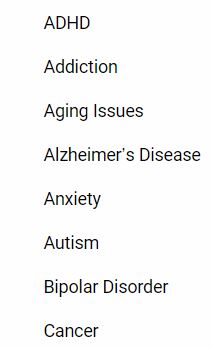
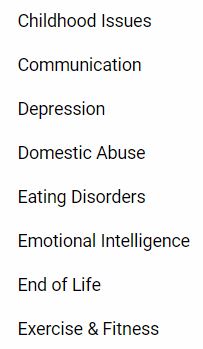
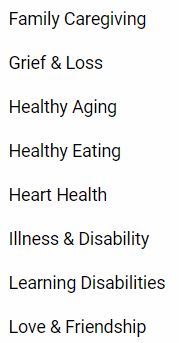
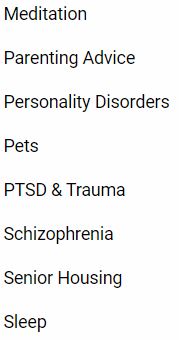
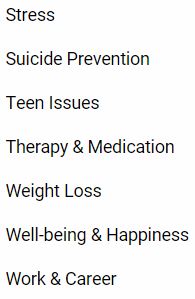
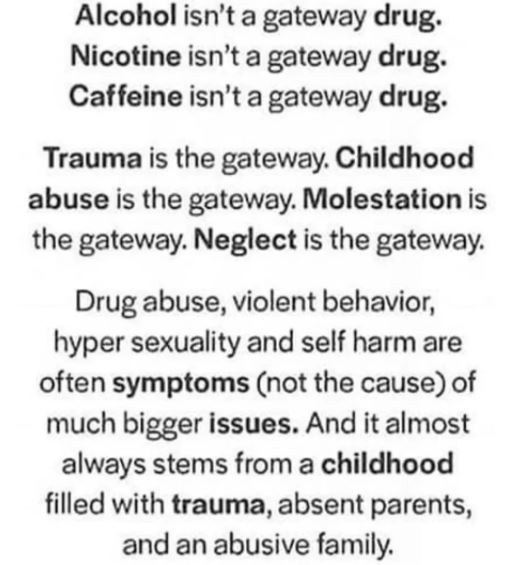
Kaytlyn Gillis is the author of the book Invisible Bruises, and her Blog on Psychology Today Kaytee Gillis, LCSW-BACS | Psychology Today.
While much of the information in Kaytee’s book is for Survivors of Domestic Violence, her work focuses on assisting survivors of psychological abuse, stalking, and other non-physical forms of domestic violence and family trauma.
Follow Kaytlyn Gillis @ claras_voice on Instagram. You can also listen to her Podcast, KAYTEE with a Why – The Podcast, on Spotify and Anchor.
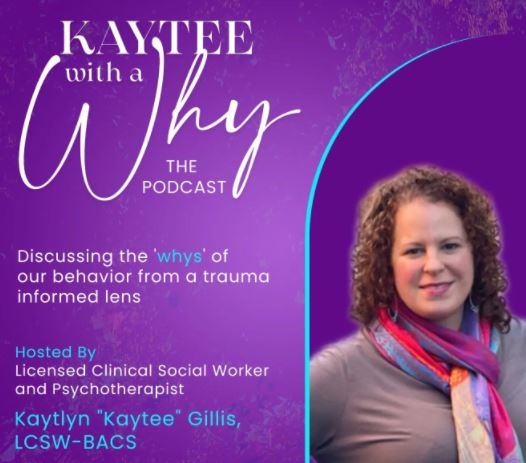
From Amazon: Kaytlyn Gillis’s debut, Invisible Bruises, is gripping account of the ways in which the legal system actually perpetuates the cycle of domestic violence. Gillis describes in a chilling, raw manner the way that victims continuously fall through the cracks in our criminal justice system while the courtroom becomes yet another tool that perpetrators use to further the abuse. Gillis navigates the courtroom battle with readers while giving tips for minimizing the risk of re-traumatization. (Available on Amazon.)
While much of the information in Kaytee’s book is for Survivors of Domestic Violence, her work focuses on assisting survivors of psychological abuse, stalking, and other non-physical forms of domestic violence and family trauma.
Kaytee also has a Blog on Psychology Today, with many articles that contain a lot of information for Survivors of Trauma, in general. See, 5 Mental Health Goals for Trauma Survivors in the New Year.
Follow @claras_voice – Resources for healing for all survivors of family trauma and domestic abuse
National Organization for Victim Assistance
HOTLINE: 1-800-879-6682
Founded in 1975, NOVA is the oldest national victim assistance organization of its type in the United States and is the recognized leader in victim advocacy, education and credentials.
“The National Organization for Victim Assistance (NOVA) is a private, nonprofit organization of victim and witness assistance practitioners, criminal justice professionals, researchers, former victims, and others, committed to recognizing victims’ rights in four areas: national and local legislative advocacy, direct victim assistance, member support, and professional development.
NOVA coordinates the National Crisis Response Team and the National Crime Victim Information and Referral Hotline.”
ADVOCATES AND SHELTERS (Local Programs) listed by State, organized by County:
Office for Victims of Crime
JUSTICE FOR VICTIMS. JUSTICE FOR ALL.
- Resources and research from OVC and other Federal Government agencies
- Local and national direct assistance information
- Map of services and task forces, and related funding opportunities for victims and survivors of human trafficking
- Victim service providers
- Law enforcement, and allied professionals.
The Child Trafficking and Exploitation site offers resources, forum discussions, and FAQs.
Training Specific:
The OVC Training & Technical Assistance Center (OVC TTAC) provides a diverse range of specialized training and technical assistance services related to human trafficking through its in-house subject matter experts and vetted consultants.
Direct technical assistance is provided on:
- task force formation,
- organizational structure,
- promising practices,
- revitalization, and other trafficking topics.
In-person training and technical assistance, including:
- distance consultation, tailored to requester’s needs, is available at no cost through OVC TTAC’s Customized Training and Technical Assistance Program.
- Any professional who encounters victims of human trafficking is eligible to request victim-centered training on human trafficking.
- OVC TTAC also can review protocols, training materials, and documents.
- Training audiences include attorneys, judges, law enforcement, prosecutors, social service providers, task force members, and allied professionals.
Pathways to Safety International
HOTLINE (833) 723-3833
“Pathways to Safety International serves people of all genders, races, ethnicities, religions, abilities, age and their pets who are victims/survivors of gender based violence, including sexual assault, domestic violence, stalking and forced marriage abroad.” (includes overseas military victims)
Email:crisis@pathwaystosafety.org
“Pathways to Safety International offers a continuum of culturally sensitive services. PSI provides long term case management from advocates with intercultural backgrounds and experience working with sexual violence survivors, who have been specifically trained and are knowledgeable on the additional obstacles that American survivors overseas face.
PSI’s advocates will assist with international danger to safety relocation, specialized international safety planning, referrals to seasoned international family law attorneys experienced with the Hague and international child custody cases, international transition services, and assistance with housing and other basic needs when a survivor has left their abuser, it may be back in the United States or in another area of the world.”
Special populations served are overseas military victims, victims with disabilities, LGBTQIA victims aboard, and immigrants and refugees (both American survivors immigrating abroad and foreign-born survivors immigrating to the U.S. with an American spouse or children who face additional barriers and obstacles).”
Email:crisis@pathwaystosafety.org
Victim Connect
HOTLINE: Phone or text: 1-855-4-VICTIM
(1-855-484-2846)
If this is an emergency, please call 911.
“A program of the National Center for Victims of Crime, it combines:
- A traditional telephone-based helpline: 855-4-VICTIM (855-484-2846)
- An innovative online chat: Chat.VictimConnect.org
- Web-based information and service referrals: VictimConnect.org
“With extensive specialized training, our Victim Assistance Specialists stand ready to help crime victims.”
“National hotlines can help connect victims, survivors, and their support networks connect with local resources. The VictimConnect Resource Center is one of several other national hotlines that are dedicated to helping victims understand their rights and options, and make the choices that will best support their recovery.
“We suggest you choose the hotline that is best for you. If you aren’t sure which helpline, the VictimConnect Resource Center can speak with you about which helpline might fit your needs and what your other options are.”
Who do we serve?
The VictimConnect Resource Center serves victims of crime in the United States. Our services are specifically designed to refer victims to the most appropriate local or national resources based on their experiences and needs. Our most served crimes are:
- Sexual Assault (including campus)
- Assault/Attempted Homicide
- Domestic/Dating Violence (and/or protective order violations)
- Homicide
- Financial Crimes (Identity Theft, Fraud and/or Exploitation)
- Hate Crimes
- Human Trafficking (labor and sex)
- Stalking
- Mass Events
- Elder Abuse or Neglect
- Child Abuse (Physical, Sexual, and/or Neglect)
Additional Resources
- Advocates and Shelters | WomensLaw.org (drop-down menu for your State)
- Click here to enter your zip code: Find Domestic Violence and Abuse Help, Information and Stats (domesticshelters.org)
Domestic Violence Support | The National Domestic Violence Hotline (thehotline.org)
- National Organizations | WomensLaw.org (listed by subject matter)
- Chat Rooms and Message Boards | WomensLaw.org
- VictimConnect (serves victims of crime in US (including assault, abuse, domestic violence, teen dating violence, trafficking, stalking, etc.), and make local referrals.
Mental Health Resources
